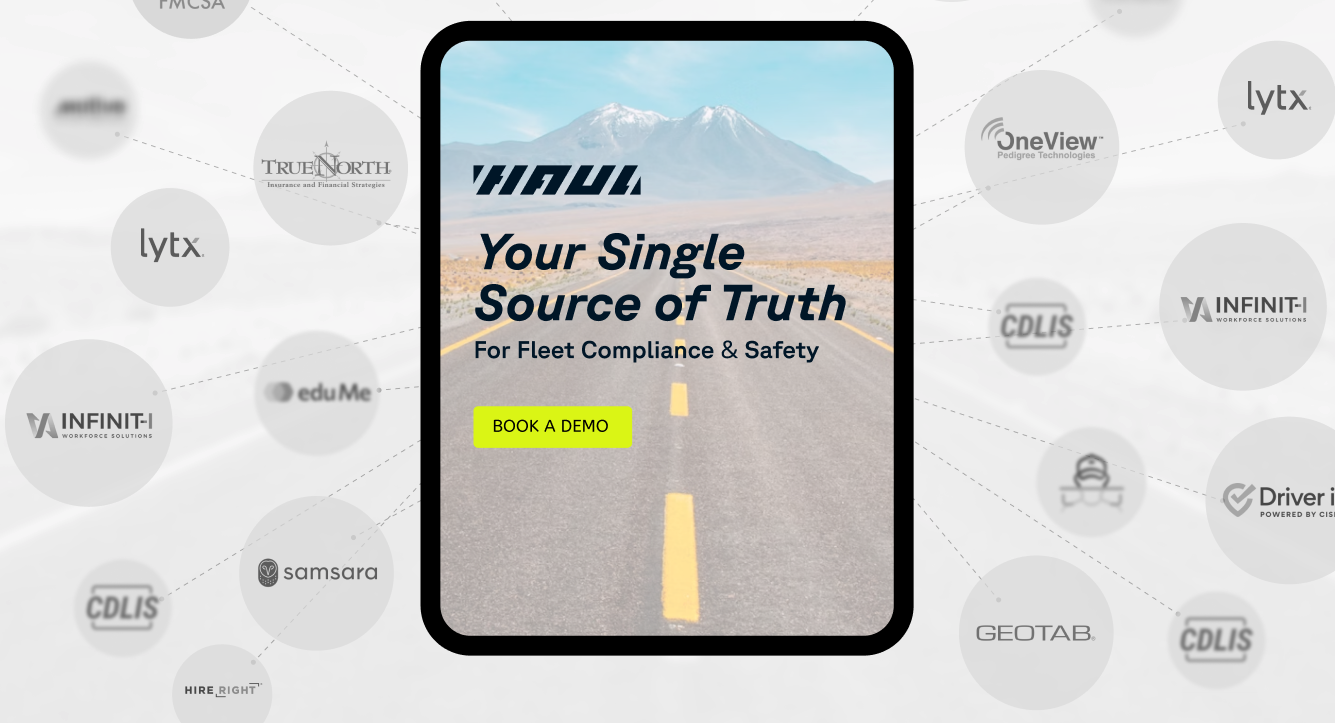Does a tow truck need a DOT number

Navigating the world of fleet management can be complex. One question that often arises is, "Does a tow truck need a DOT number?"
This question is more than just a matter of curiosity. It's a crucial aspect of compliance, safety, and risk management in commercial fleets.
Understanding the Department of Transportation (DOT) number requirements for tow trucks is essential. It's not just about adhering to regulations, but also about ensuring the safety of your drivers and the public.
In this article, we'll delve into the specifics of DOT number requirements for tow trucks. We'll clarify the regulations, explain the importance of compliance, and provide actionable insights.
Our goal is to help fleet managers, logistics directors, and risk management officers integrate this knowledge into their strategies. This will lead to improved safety, risk management, and operational efficiency.
So, let's get started and answer the question, "Does a tow truck need a DOT number?"

Understanding DOT Numbers and Their Importance
A DOT number is a unique identifier for commercial vehicles operating in the United States. Issued by the Federal Motor Carrier Safety Administration (FMCSA), it's crucial for regulatory compliance.
These numbers are not merely identifiers; they play a vital role in safety audits and accident investigations. They also facilitate the tracking of a company's safety records.
Here are some reasons why DOT numbers matter:
- They ensure compliance with federal regulations.
- They assist in monitoring vehicle safety performance.
- They are key in maintaining legal and insurance standards.
For fleet managers, understanding the importance of DOT numbers is imperative. It goes beyond meeting legal obligations. DOT numbers enhance transparency, trust, and the overall credibility of towing operations.
Who Needs a DOT Number? The Criteria for Tow Trucks
Not all tow trucks need a DOT number, but many do. The criteria vary based on several factors.
Primarily, a DOT number is required if a tow truck engages in interstate commerce. This applies when crossing state lines for business purposes.
Weight is another crucial factor. Tow trucks with a gross vehicle weight rating (GVWR) over 10,000 pounds must obtain a DOT number.
Here's a quick checklist to determine if your tow truck needs a DOT number:
- Engages in interstate commerce.
- Has a GVWR over 10,000 pounds.
- Transports hazardous materials, irrespective of weight.
Even if your operations are intrastate, state regulations might still demand a DOT number. It's essential to stay informed about these requirements. Understanding these criteria ensures your fleet remains compliant and avoids potential penalties.
The Role of the FMCSA and Legal Implications of Non-Compliance
The Federal Motor Carrier Safety Administration (FMCSA) oversees DOT number regulations. They ensure that commercial vehicles like tow trucks comply with safety standards.
Failing to obtain a required DOT number can lead to serious consequences. Non-compliance may result in legal action and hefty fines, impacting your business's bottom line.
Beyond financial penalties, there are operational setbacks. Vehicles can be put out of service, causing delays and disrupting business.
Maintaining compliance with FMCSA regulations is paramount. It not only safeguards your operations but also upholds public safety standards.

Applying for a DOT Number: A Step-by-Step Guide for Tow Trucks
Applying for a DOT number is a crucial process for tow truck operators. Ensuring compliance starts here. This guide simplifies the process.
First, visit the Unified Registration System (URS) on the FMCSA website. It's your gateway to begin the application.
Next, you'll need to gather essential information. Prepare details about your business, such as your Employer Identification Number (EIN) and company structure.
Completing the application involves several steps. Here’s a basic breakdown:
- Register and login to the URS.
- Fill in your business and vehicle information.
- Submit your application and pay the registration fee.
Once you've applied, monitor the application status. Be prepared to submit additional documents if requested.
Upon approval, display your DOT number on your tow trucks prominently. It signals compliance and boosts credibility within the industry.
Maintaining Compliance: Updating and Managing Your DOT Number
Compliance doesn't end with obtaining a DOT number. Continuous management is essential for operational efficiency.
Regularly update your information through the FMCSA portal. Changes in business operations or fleet size require prompt updates.
Ensure all driver and vehicle records are current. Accurate documentation is vital for compliance audits.
Conduct periodic internal audits of your DOT number records. These checks help spot discrepancies and prevent potential violations.
Prioritize ongoing employee training on DOT requirements. Well-informed staff can better uphold compliance standards.
Staying updated on regulation changes is equally important. New rules may impact your current compliance status.
Effective management of DOT numbers contributes to your fleet’s safety and reliability. It reassures clients and minimizes legal risks.
Leveraging Technology for DOT Number Management and Compliance

Modern technology offers powerful tools to enhance DOT number management. Integration of digital solutions streamlines compliance processes.
Fleet management software centralizes DOT data, ensuring easy access and updates. This approach reduces administrative burden.
Telematics and GPS tracking aid in monitoring fleet activities. They ensure real-time compliance with DOT regulations.
Consider these key technologies for effective DOT management:
- Digital recordkeeping systems
- Fleet management and telematics software
- Automated compliance alerts and reminders
Adopting these technologies promotes operational efficiency. It allows fleet managers to focus on strategic priorities.
Moreover, technology fosters transparency with regulatory bodies. Efficient data management supports smoother inspections and audits.
Ultimately, embracing technological solutions enhances both safety and compliance. It lays the groundwork for future fleet innovations.
Real-World Consequences: The Impact of DOT Number Non-Compliance
Non-compliance with DOT number regulations can have severe consequences. These range from hefty fines to potential business closure.
Beyond financial penalties, there's reputational damage. Customers prefer trustworthy and compliant service providers.
Ultimately, non-compliance undermines safety and risk management efforts. It creates vulnerabilities in fleet operations that could be costly. Prioritizing compliance avoids these pitfalls and promotes stability.
Integrating DOT Number Compliance into Fleet Management Systems
Integrating DOT number compliance into your fleet management systems is essential. It enhances efficiency and safety in operations. By streamlining processes, you ensure all vehicles are compliant.
Start by incorporating technology solutions. Use software that tracks DOT number status and requirements. This provides real-time updates and alerts for necessary actions.
Develop a comprehensive database for all vehicles. Include DOT numbers, expiration dates, and compliance status. This allows for easy access and monitoring.
Regular training sessions for staff are crucial. Educate your team about the importance of compliance. Make sure they understand how to use the technology effectively.
Finally, ensure your fleet management system is adaptable. It should allow easy updates to regulations or organizational changes. This flexibility guarantees long-term compliance and operational success.
Conclusion: The Value of DOT Number Compliance in Fleet Operations
The value of DOT number compliance extends beyond mere regulation adherence. It is a crucial element that ensures safety and efficiency in fleet operations. By meeting these requirements, you build trust with clients and regulatory bodies.
Compliance helps mitigate risks associated with legal penalties and accidents. Maintaining a spotless compliance record can reduce insurance costs and improve operational reliability. This proactive approach reinforces your company's reputation in the industry.
Moreover, embracing compliance as a core strategy fosters a culture of safety within your organization. It reinforces your commitment to best practices, enhancing the overall success of your fleet operations. Adapting to these requirements positions you as a leader in the competitive field of fleet management.

